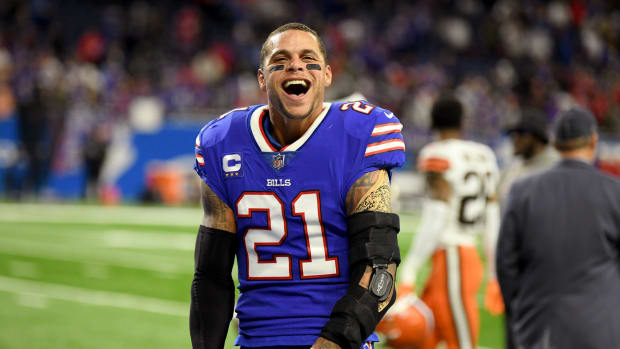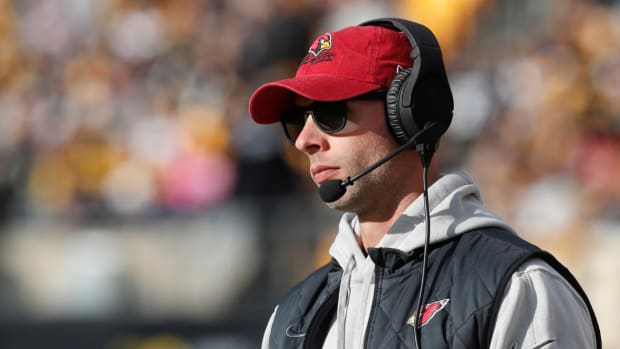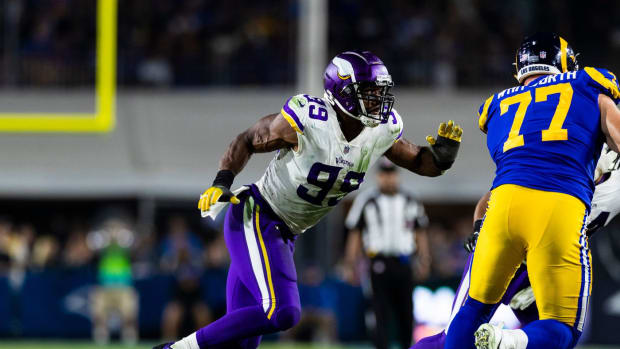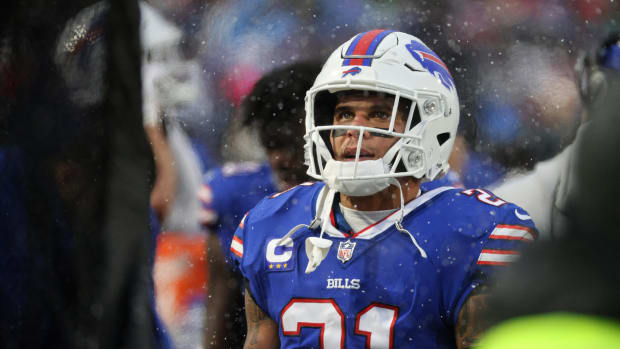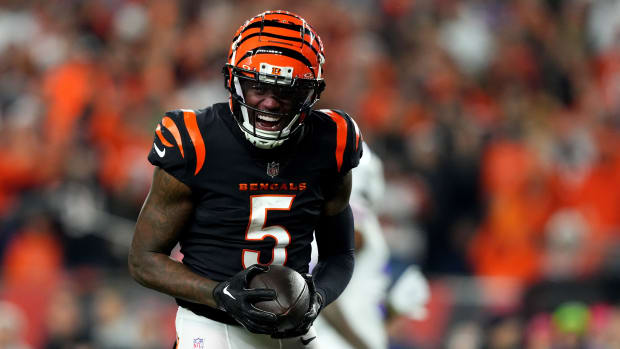Mentor vs. disciple doesn't provide a comfort zone
Tony Dungy learned a critical lesson during his Hall of Fame coaching career. When facing your mentor - or someone you guided yourself - take pride, enjoy the atmosphere.
Then forget all about it.
This weekend, Bill Belichick will work against his former offensive assistant, Bill O'Brien, when the Patriots host the Texans in the divisional round. Dan Quinn, once Pete Carroll's assistant, will lead his Falcons against Carroll's Seahawks.
Last Sunday, it was Giants coach Ben McAdoo against his former boss in Green Bay, Mike McCarthy.
''If you are not careful, you can go against tendency,'' says Dungy, who coached a bunch of times against one of his mentors, Denny Green. ''I would think, `Denny knows this about me and so I better not do it.' You can talk yourself out of doing what you do best and try to win with what you do second or third best and that doesn't work. You have to be smart about it.
''Everybody knows you in the league and you know everyone, but some people know you a little more. If you are not careful, you can definitely fall into not being yourself and not doing what you do. Denny always preached that to me: `Go down with your best guns firing' and I had to remind myself of that when playing against those guys.''
O'Brien has had tougher assignments than taking his Texans to New England in the playoffs; he took over at Penn State after the scandal. But in the pros, trying to outfox Belichick in Foxborough is a monumental task.
O'Brien prefers to concentrate on - and use - everything he learned while with the Patriots rather than weigh how big the challenge is.
''When you're fortunate enough to work there as a coach, as a personnel guy or whatever your role is there,'' O'Brien says, ''if you're smart, you take advantage of knowing that you're working in a great place and it is a little bit of a classroom, especially when you're working for him. There's a lot you can learn. You can learn about obviously X's and O's, but I think it goes a lot deeper than X's and O's.
''You learn about motivation. You learn about personnel evaluation. You learn about putting a roster together and putting a team together. Just a lot of different things that help you in your career ... wherever you coach after that.''
Perhaps the more intriguing matchup of mentor vs. disciple is Carroll and Quinn. Both have highly successful defensive backgrounds. Both are what is often termed a ''players' coach,'' with approaches far from the old-school totalitarianism often found in football. Yes, still.
Even though he's the NFL's oldest coach, Carroll is more in tune with today's athlete than most of his peers. He drew laughs when he stuck the needle into his former assistant leading up to Saturday's game.
''We always placed all the focus on Dan when he was here and we hope you will continue to do that there,'' he laughingly told Atlanta media. ''He really should be the center of the storm there. Just keep pumping him up.
''He's awesome. He's a great guy to work with. He's a great coach, great in relating to the players, and real fun to be around.''
That might sound like gratuitous coachspeak, except from Carroll it's genuine.
Oddly, it's the Falcons' offense that could be the difference maker against Seattle.
''I never intended to have Seattle East, I wanted to create our own Atlanta,'' Quinn says. ''Of course, I learned fantastic lessons from my time with Pete and (general manager John Schneider), and the players there, for sure. But one of the best pieces of advice was, `Hey, Q, do it your own way and let it rip.' That came from Pete, and I've tried to really stay true to that.''
NFL coaching trees are such that it's rare when any game doesn't feature someone who worked for someone. Perhaps the ultimate mentor/student matchup came in the 2007 Super Bowl: Dungy vs. Lovie Smith. That also was the first time an African-American was the head coach in the NFL's title game - times two.
It was fulfilling yet awkward for Dungy, whose coaching disciples include Herm Edwards, Jim Caldwell, Mike Tomlin, Leslie Frazier and Smith, among others.
''There's the other side: It is really tough on you when you're the mentor,'' Dungy says. ''Of course you want your team to do well, but you have a strong feeling for those guys, too, and a sense of pride when they do well.
''That's why playing against Lovie in the Super Bowl was very difficult. It was a great sense of accomplishment to make the Super Bowl and for Lovie to make the Super Bowl, but you also know the kind of criticism the losing coach will get.
''Still, you are so happy and proud that both of you are there, but it is tough. You want those guys to do well overall.''
What you don't want is to overthink things.
''It can get to be, `Is he thinking what I think he is thinking,''' Edwards says with a laugh. ''It gets more difficult in that sense. You can't put your players in positon to fail because of you having an inkling of what he wants to do. When it comes to situations in a football game, you have watched the guy who has mentored you, and you sort of know, `in this situation, this is what coach likes to do.'
''But you can't be changing things. It has to be that these are the things we do.''
O'Brien has done well, winning two AFC South crowns despite quarterback issues. Quinn won the NFC South in his second season in charge. McAdoo ended the Giants' four-season non-playoff run in his first year as head man.
Now the challenge is catching up with their mentors' trophies.
---
AP Sports Writers Kristie Rieken and Kyle Hightower contributed.
---
For more NFL coverage: http://www.pro32.ap.org and http://www.twitter.com/AP-NFL
































